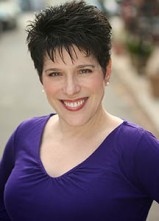The Price of Having It All
New study finds women tired and stressed, but understanding God’s call can shed light on the problem
Are women satisfied with having it all?
Not entirely, according a new Barna Group study. From commitments to family, career, church and community, women often are pulled in opposite directions. Not all are happy with their choices.
We’ve analyzed the data and present the top five findings:
- Mothers want a better balance between work and family life. A majority of women in the study (59 percent) say they are dissatisfied with this balance. Among mothers with children at home, this rate increased to 62 percent. Eighty percent of moms say they feel overwhelmed by stress (compared to 72 percent among all women).
- Mothers rank family as their No. 1 priority. As job 1, family consumes the most of their time for seven out of 10 women. Not surprisingly, no other commitment comes close to it. Career comes in second, with two out of 10 mothers saying they spend most of their time at work. Career, however, is last on their priority list—after family, personal development, church and friendship.
- Mothers feel greater dissatisfaction when they compare their lives with those of other women. In fact, moms with children at home (14 percent) are twice as likely as those without kids (7 percent) to view other women’s quality of life as better than their own. Similarly, mothers are twice as likely to say their female counterparts have a better career life (21 percent compared to 11 percent of all women) and better financial comfort (22 percent compared to 10 percent) than they do.
- Family life is the greatest source of stress for mothers. Although 61 percent of mothers say they’re satisfied with their family life, many also say it’s their greatest source of stress. Mothers are nearly twice as likely (20 percent) as women without kids (12 percent) to become stressed to the point of illness.
- Mothers feel spread too thin. More than three out of 10 moms (31 percent) say they have too many commitments at work (compared to 25 percent of all women), and 26 percent say they feel spread too thin at home (compared to 18 percent among all women).
Kate Harris, a mother of three and leader of an organization dedicated to vocation and calling, explores the word “vocation” in light of these data.
While vocation is often understood in terms of a job or career, Harris says it’s broader than that: It’s a person’s entire life lived in response to God’s voice. Such a definition requires practical trade-offs, but it never asks women to compartmentalize their lives into artificial categories of work and life, or home and market, she says.
“Vocation offers the possibility that my life and my faith can be richly and imaginatively stewarded as a whole that is greater than the sum of its part,” she adds.
“God cares that I steward the life that is front of me,” she continues. “To wrestle and wrangle or muddle my way through it—whatever it takes—but to always insist that it makes sense, that it holds together. To believe the details of our days really do connect to some bigger purpose God has for our lives.”

Maria Wolf
Maria Wolf is an editor at American Bible Society and has more than 20 years of experience as a journalist. She is a classically trained soprano who uses her gift of music to minister to the congregations of St. Gertrude in West Conshohocken, Pa., and Mother of Divine Providence in King of Prussia, Pa.
Thanks to the support of our faithful financial partners, American Bible Society has been engaging people with the life-changing message of God’s Word for more than 200 years.
Help us share God's Word where needed most.
Sign up to stay in touch with how God is changing lives with his Word!









